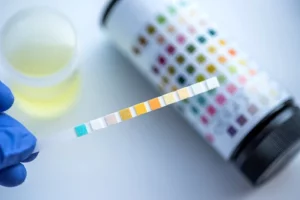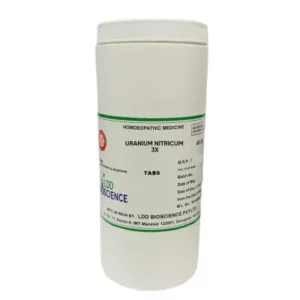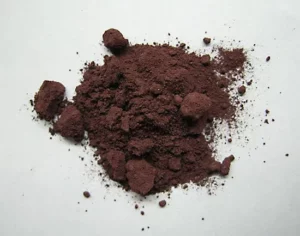Sugar in urine, also known as glycosuria, can be a concerning condition that may indicate underlying health issues such as diabetes or kidney problems. While conventional medicine offers various treatments, some individuals explore alternative approaches like homeopathic medicine to manage their condition. In this blog, we will delve into the world of homeopathy and the potential role of Homeopathic Medicines for Sugar in Urine.
What is Glycosuria?

Glycosuria is a medical condition characterized by the presence of an abnormal amount of glucose (sugar) in the urine. Under normal circumstances, the kidneys filter the blood and reabsorb all the glucose, preventing it from being excreted in urine. However, when the blood glucose levels are elevated, as is the case in conditions like diabetes, the kidneys may not be able to reabsorb all the glucose, leading to its excretion in the urine.
There are several possible causes of glycosuria, and it is often associated with disorders related to glucose metabolism. The most common cause is diabetes mellitus, a chronic condition characterized by elevated blood sugar levels due to either insufficient insulin production (Type 1 diabetes) or ineffective use of insulin by the body (Type 2 diabetes).
Other potential causes of glycosuria include:
- Kidney Disorders: Certain kidney diseases can affect the ability of the kidneys to reabsorb glucose properly, leading to glycosuria.
- Hormonal Imbalances: Conditions that disrupt the normal balance of hormones in the body, such as hormonal disorders or pregnancy, can contribute to glycosuria.
- Certain Medications: Some medications, such as certain diuretics, may cause glycosuria as a side effect.
- Infections: Infections affecting the urinary tract or other parts of the body may sometimes lead to glycosuria.
Why Do People Prefer Homeopathic Medicines for Sugar in Urine (Glycosuria)?
People may choose homeopathic medicines for managing sugar in urine (glycosuria) for various reasons, influenced by personal beliefs, experiences, and the principles of homeopathy. It’s important to note that while some individuals find relief and benefit from homeopathic approaches, the effectiveness of these treatments can vary, and scientific evidence supporting their use for glycosuria may be limited. Here are some reasons why people might opt for homeopathic medicines in the context of glycosuria:
- Holistic Approach: Homeopathy is known for its holistic approach to health. Practitioners consider not only the physical symptoms but also the individual’s mental and emotional well-being. This holistic perspective resonates with those seeking a comprehensive approach to health and wellness.
- Individualized Treatment: Homeopathic treatments are highly individualized. A homeopath considers the unique symptoms and characteristics of each person before prescribing a remedy. This personalized approach appeals to individuals who appreciate the idea of tailored treatments based on their specific health profile.
- Minimal Side Effects: Homeopathic remedies are often prepared using highly diluted substances, and as a result, they are considered to have minimal side effects. This aspect can be appealing to individuals who are concerned about adverse reactions associated with conventional medications.
- Philosophy of Like Cures Like: Homeopathy operates on the principle of “like cures like,” where substances that produce symptoms in a healthy person are used in highly diluted forms to stimulate the body’s self-healing mechanisms. Some individuals are drawn to this philosophy as a way of addressing the root cause of their health issues.
- Complementary Approach: Some people choose homeopathic remedies as a complementary approach alongside conventional medicine. They may see it as a way to support their overall well-being and symptom management in conjunction with traditional treatments.
List of Homeopathic Medicines for Sugar in Urine (Glycosuria)
It’s essential to approach homeopathic remedies with caution and under the guidance of a qualified homeopath or healthcare professional. Homeopathic treatments are highly individualized, and the selection of a remedy is based on the specific symptoms and overall health of the individual. Here is a list of some homeopathic medicines that are sometimes considered for glycosuria, along with brief descriptions of their potential indications:
Uranium Nitricum

- Indicated for glycosuria with excessive thirst and dry mouth.
- May be beneficial for individuals with a tendency to lose weight despite a good appetite.
- It is often prescribed when there is an increased desire for water and a feeling of weakness.
Phosphoric Acid
- Useful for glycosuria associated with weakness, fatigue, and mental exhaustion.
- May be recommended for those who experience a marked thirst for cold drinks.
- Indicated for individuals who may feel emotionally drained and indifferent.
Syzygium Jambolanum
- Well-known remedy for diabetes and its associated symptoms.
- Believed to have a positive effect on blood sugar levels.
- May be considered for those with excessive urination and a constant feeling of thirst.
Natrum Phos
- Indicated for glycosuria accompanied by digestive issues such as acidity and flatulence.
- May be recommended for individuals who have a craving for salty foods.
- Useful for cases where there is a sensation of heaviness and bloating in the abdomen.
Lycopodium Clavatum
- Suitable for cases of glycosuria with bloating, gas, and a tendency to develop liver-related problems.
- May be indicated for those with a preference for warm food and drinks.
- Often prescribed when there is a craving for sweets and a feeling of fullness after eating a small quantity of food.
Arsenicum Album
- Indicated for glycosuria with restlessness and anxiety.
- May be recommended for individuals who experience burning sensations and frequent urination.
- Suited for cases where there is an increased thirst for small sips of water.
Phosphorus

- Useful for glycosuria with weakness, especially in the liver and digestive system.
- May be recommended for individuals who are sensitive to external stimuli, such as light and noise.
- Indicated when there is a craving for cold drinks and ice cream.
Acidum Phosphoricum
- Indicated for glycosuria with exhaustion and mental fatigue.
- May be recommended for individuals experiencing memory weakness and apathy.
- Suited for cases where there is an aversion to exertion and a desire for solitude.
Iris Versicolor
- Indicated for glycosuria with gastric disturbances and burning sensations in the digestive tract.
- May be recommended for individuals who experience acidity and vomiting.
- Suited for cases where there is a correlation between sugar in urine and digestive issues.
Argentum Nitricum
- Useful for glycosuria with nervousness and anxiety.
- May be recommended for individuals who exhibit impulsive behavior and a fear of impending doom.
- Indicated for cases where there is an association between emotional stress and the presence of sugar in urine.
Cephalandra Indica
- Often considered for glycosuria associated with diabetes.
- May be recommended for those with excessive thirst, dryness of mouth, and frequent urination.
- Indicated when there is a craving for sweets and a tendency to develop skin-related issues.
Natrum Sulphuricum
- Indicated for glycosuria with a history of liver disorders.
- May be recommended for individuals with a sensation of heaviness in the abdomen.
- Suited for cases where there is an aggravation of symptoms in damp weather.
Chionanthus Virginica
- Considered for glycosuria with liver and gallbladder issues.
- May be recommended for individuals who experience pain or discomfort in the liver region.
- Indicated when there is a tendency to develop gallstones.
Belladonna
- Useful for glycosuria with sudden onset and intense symptoms.
- May be recommended for individuals with a flushed face, throbbing headaches, and sensitivity to light.
- Indicated when there is an association between fever and sugar in urine.
Bryonia Alba
- Indicated for glycosuria with dryness of mucous membranes and a desire for large quantities of water.
- May be recommended for individuals who experience irritability and worsening of symptoms with motion.
- Suited for cases where there is joint pain and stiffness.
While some individuals find solace in homeopathic remedies, it’s crucial to acknowledge that conventional medicine offers well-established approaches for managing sugar in urine (glycosuria). Here are some alternative methods and medications commonly used in mainstream healthcare:





